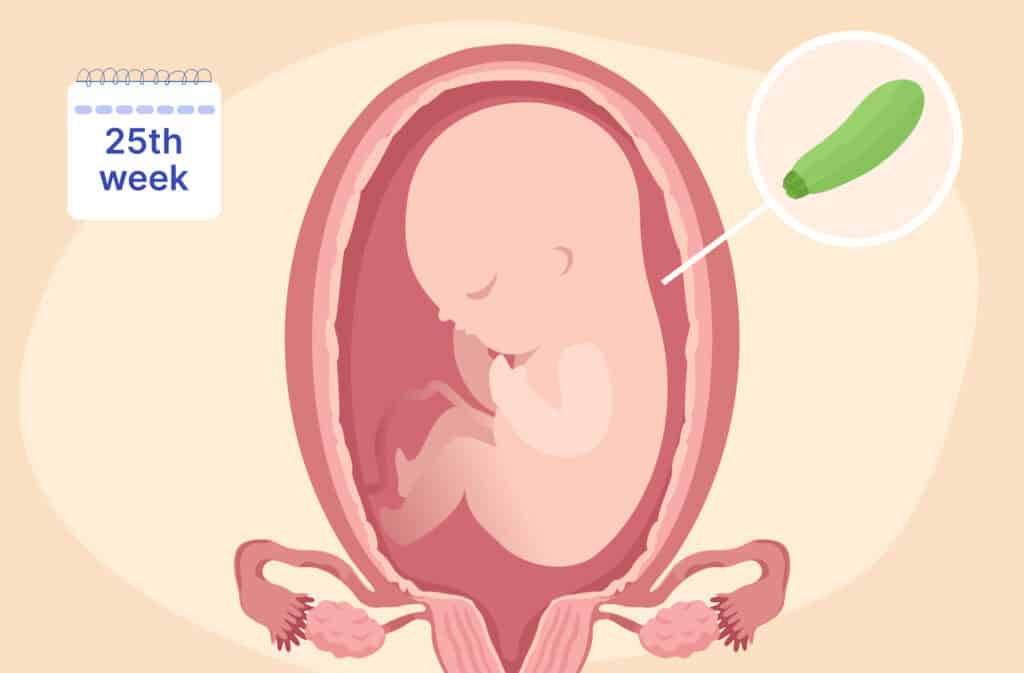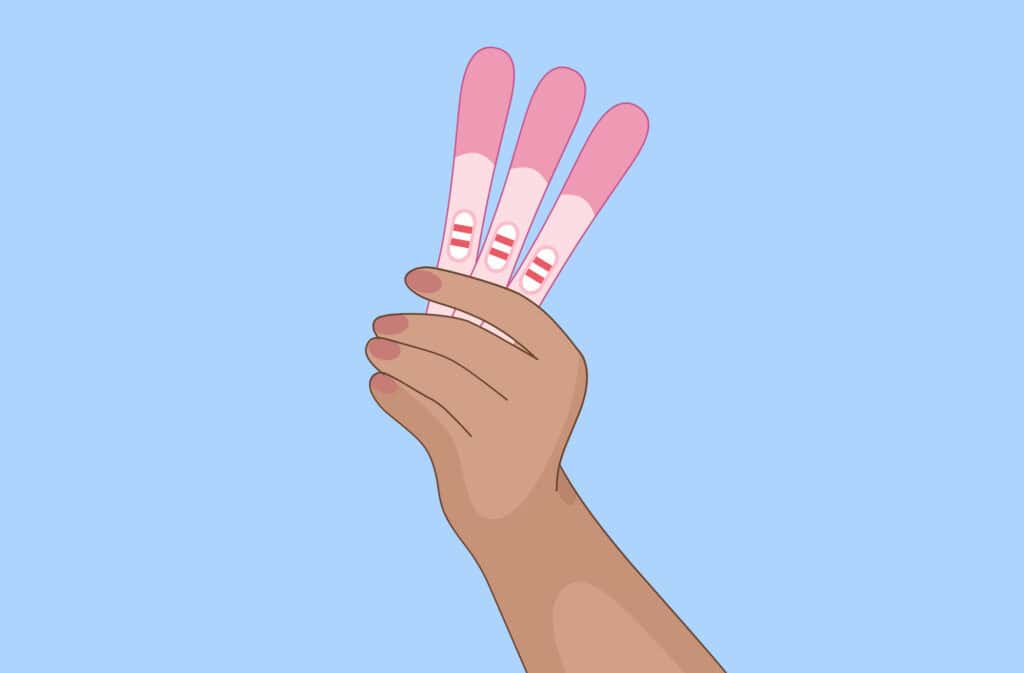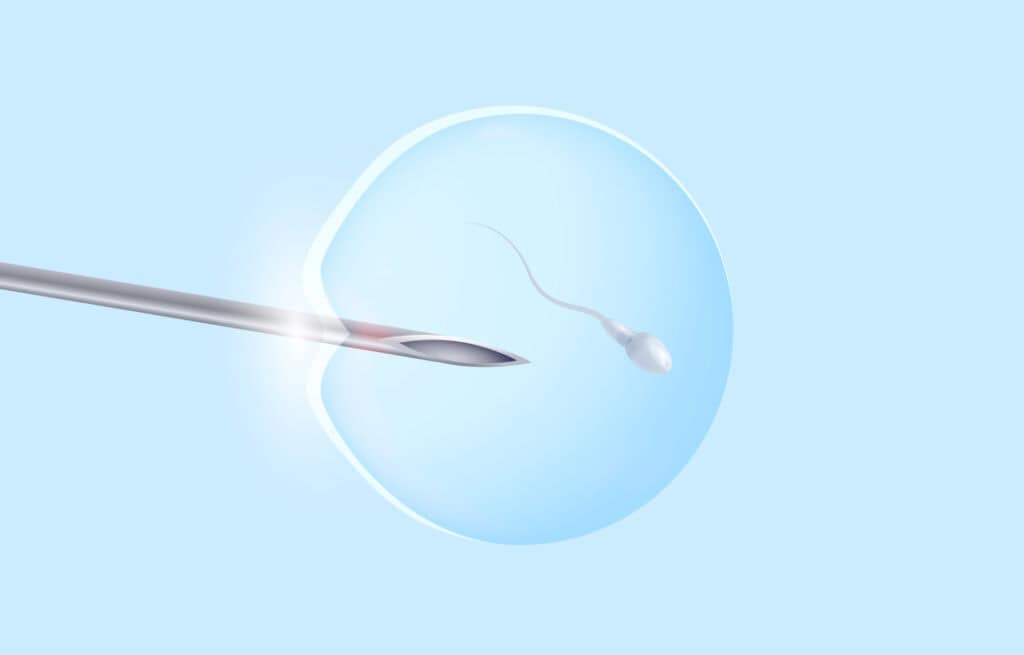Femia > Health Library > Pregnancy > Pregnancy week by week > 25 Weeks pregnant: How your baby’s growing and what you should know
25 Weeks pregnant: How your baby’s growing and what you should know

- Updated Feb 20, 2025
- Published
CRAFTED BY HUMAN
Crafted by human At Femia, we provide accurate and up-to-date information at every stage of your journey, from trying to conceive, pregnancy and postnatal support. All content is created by a real person based on in-depth research and own professional experience. Femia ensures that you will receive expert advice, strict accuracy and a personalized approach from our authors/medical experts. Learn more about our editorial policy.
FACT CHECKED
Fact checked At Femia Health, we maintain the highest standards of editorial excellence in delivering content focused on helping you conceive, guiding you through pregnancy, and supporting you postpartum. Explore our content review principles to learn how we ensure the accuracy and quality of our health and lifestyle tips for every stage of your journey.
At 25 weeks pregnant, your baby weighs about 1.5 pounds and actively practicing movements like kicks and stretches. Your body is adapting to a larger bump and symptoms like frequent urination, which can be managed with small lifestyle adjustments.
Welcome to week 25 of your pregnancy journey! Your belly is likely more noticeable, and you might be navigating new or changing symptoms, like increased urination or mild back pain. As you move closer to the third trimester, understanding what’s happening with your baby and body can help you feel prepared for what’s ahead. Here’s everything you need to know about week 25, including tips for staying comfortable and healthy.
With Femia, you will get personalized insights every step of the way
Pregnancy symptoms at 25 weeks
Here are the common symptoms to expect during week 25:
Thicker hair
Thanks to hormonal changes during pregnancy, your hair may appear fuller and shinier. The reason isn’t that you’re growing more hair, but that the hair you would normally shed stays in place longer. Unfortunately, after delivery, this extra hair will begin to fall out.
SPD (Symphysis pubis dysfunction)
Also known as pelvic girdle pain, SPD can occur as your body prepares for childbirth. Relaxation of the pelvic ligaments allows your pelvic bones to move more freely, which, combined with the increasing size of your baby, can lead to discomfort and limited mobility. If you’re experiencing pelvic pain, consult your provider about treatments. Avoid activities that cause pain, rest when needed, and consider a pelvic support belt.
Itching
As your belly and breasts grow, the stretching skin can cause itching. While this is a common and non-concerning symptom, if the itching becomes severe or comes with a rash, it could indicate a condition like cholestasis. To alleviate mild itching, try oatmeal baths, moisturizing lotions, and wearing loose-fitting clothes.
Insomnia
As your due date approaches, getting restful sleep can be more challenging. The growing pressure on your bladder and your changing body can lead to frequent nighttime trips to the bathroom. To improve sleep, try techniques like progressive muscle relaxation, guided imagery, and other calming methods to reduce anxiety and discomfort.
Dizziness
As your due date approaches, getting restful sleep can be more challenging. The growing pressure on your bladder and your changing body can lead to frequent nighttime trips to the bathroom. To improve sleep, try techniques like progressive muscle relaxation, guided imagery, and other calming methods to reduce anxiety and discomfort.
Gas and bloating
Gas and bloating can become more noticeable during pregnancy. Keeping track of foods that trigger your symptoms can help. Common culprits include dairy, beans, and fatty foods. If lifestyle changes don’t help, ask your provider about safe remedies to relieve discomfort.
👉Find out more: 24 Weeks pregnant: From tiny kicks to big developments
Your body at 25 weeks pregnant
At 25 weeks, your uterus is about the size of a soccer ball, sitting above your belly button. This growth shifts your center of gravity, which can lead to backaches and balance changes. Your baby’s increased movements may be more noticeable, especially during quiet moments or at night. Maternity clothing is likely your go-to for comfort as your bump becomes more prominent.
In the second and third trimesters, women with an underweight or normal pre-pregnancy BMI should aim to gain approximately 1 lb per week, while those with an overweight or obese BMI should target about 0.5 lbs per week. Using a pregnancy weight gain calculator can help you monitor your progress and stay within the recommended range.
Baby development at 25 weeks pregnant
At 25 weeks, your baby is developing more essential features as they continue to grow and prepare for life outside the womb. Their organs are maturing, and they are becoming more active as their muscle strength improves.
Baby’s lungs are gearing up to breathe
Although your baby’s lungs are still developing, they are now practicing the essential movements of breathing. At this stage, your baby may take in small amounts of amniotic fluid, which helps them strengthen their respiratory muscles and prepares their lungs for breathing air after birth. While they aren’t fully ready to breathe outside the womb yet, their lungs are becoming more functional.
Baby’s nose starts working
Your baby’s nose is beginning to function as it’s becoming capable of inhaling amniotic fluid. This helps develop the baby’s sense of smell, which is crucial for bonding after birth, particularly when it comes to recognizing your scent. While they are practicing breathing in the amniotic fluid, this is an important step in the development of their respiratory system.
Baby's skin
The skin continues to develop layers of fat beneath the surface, which will help with temperature regulation after birth. At 25 weeks, your baby’s skin is still thin and translucent but is gradually becoming more opaque as fat accumulates beneath it.
Baby's brain development
Your baby’s brain continues to grow rapidly. Neurons are forming, and the brain is organizing to manage more complex bodily functions in preparation for life outside the womb. At this stage, your baby’s brain is becoming increasingly capable of regulating their own body temperature and managing other vital functions.
Baby’s movements
As the baby’s muscles become stronger, you will likely notice more regular and distinct movements. Kicks, rolls, and stretches will become more noticeable as the baby grows in size and strength. You might feel these movements more frequently, and the intensity of these kicks and jabs might even surprise you!
25-week baby size
The 25-week fetus size is approximately 13.5 inches long and weighs about 1.5 pounds, roughly the size of a courgette. This week marks significant growth as the baby continues to build strength and coordination.
25-week ultrasound
If you have an ultrasound this week, you may see your baby moving actively, practicing reflexes like sucking or grasping. This scan can also provide insights into their growth and position, and some parents use it as an opportunity to capture keepsake images.
With Femia, you will get personalized insights every step of the way
Tests to expect at 25 weeks pregnant
At 25 weeks pregnant, your healthcare provider will continue to monitor your health and your baby’s development with the following tests:
- Blood pressure monitoring: Regular checks to assess for high blood pressure or preeclampsia, which can develop later in pregnancy.
- Fetal heartbeat and movement: Your provider will listen to your baby’s heartbeat and may ask about the frequency of fetal movements, ensuring the baby is active and developing well.
- Urine test: A urine sample will be tested for signs of protein or glucose, which could indicate issues like gestational diabetes or preeclampsia.
- Blood tests: Blood work may be performed to check for anemia or other conditions like infections that could affect your pregnancy.
- Ultrasound (if needed): If there are any concerns about the baby’s growth or position, an ultrasound may be performed to monitor fetal development and amniotic fluid levels.
These tests at 25 weeks help ensure that both you and your baby remain healthy as you enter the third trimester. Make sure to discuss any concerns with your healthcare provider.
👉Find out more:
Navigating week 26: Baby’s Growth, symptoms, and expert tips
27 Weeks pregnant: Baby’s growth, symptoms, and tips for the third trimester
Health tips and self-care at 25 weeks pregnant
At 25 weeks pregnant, your body is undergoing significant changes, and taking care of yourself is crucial for your comfort and well-being. Here are some practical tips to help manage pregnancy symptoms and prepare for the upcoming months.
Start a bedtime routine
As pregnancy progresses, sleep can become more challenging. Establishing a relaxing bedtime routine can help improve your sleep quality. Try activities such as reading a book, taking a warm bath, or practicing relaxation exercises to wind down before bed. Make sure your sleeping environment is comfortable—use pillows to support your body, including your back and belly, and keep the room dark and quiet. If you continue to have trouble sleeping, talk to your healthcare provider for more tips or safe sleep aids.
Investigate maternity leave
It’s never too early to start planning for maternity leave. Take time to investigate your company’s policy and your legal rights. Ensure you understand how much time off you’ll have, whether it’s paid or unpaid, and what paperwork you’ll need to complete. This is a good time to discuss your leave with your employer and make any necessary arrangements for your time off. Consider budgeting ahead to manage financially while you’re on leave, and think about your return to work after the baby arrives.
Stay active with safe exercises
Regular exercise is beneficial for your body and baby. Low-impact exercises like walking, swimming, and prenatal yoga can help relieve pregnancy aches, improve circulation, and boost energy levels. Just make sure to avoid any high-risk activities or exercises that strain your abdomen, and always check with your healthcare provider before starting any new physical activities.
Manage heartburn
Heartburn is a common symptom at this stage of pregnancy. To minimize discomfort, avoid large meals and foods that are spicy, fatty, or acidic. Eating smaller, more frequent meals can help prevent acid reflux. Try to stay upright for at least an hour after eating, and consider propping your upper body up with pillows while sleeping to keep acid from rising.
Hydrate and nourish your body
It’s essential to drink plenty of water, especially as your blood volume increases during pregnancy. Aim to drink at least 8-10 glasses of water each day. Eating nutrient-dense meals with a good mix of lean proteins, fruits, vegetables, whole grains, and healthy fats will support your baby’s development and provide the energy you need.
Take care of your skin
Stretch marks may start to become more noticeable now, as your skin stretches to accommodate your growing baby. To help manage dryness and itching, apply a rich, hydrating moisturizer to your belly, hips, and thighs. Make sure to use creams or oils that are safe for pregnancy. Also, protect your skin from sun exposure by wearing sunscreen, especially if you’re spending time outdoors.
By taking care of yourself physically, mentally, and emotionally, you can help ensure a smoother pregnancy experience during the second trimester.
Things to avoid at 25 weeks pregnant
- Standing for long periods: This can exacerbate swelling or cause fatigue. Take breaks to sit and elevate your feet.
- Heavy lifting: Avoid tasks that strain your back or abdominal muscles.
- Overeating spicy or fatty foods: These can trigger heartburn and indigestion.
- Sleeping on your back: It’s best to sleep on your side to improve circulation and reduce pressure on your major blood vessels.
Questions from the Femia community
Should I consider a private room in the hospital?
A private room can offer more privacy and comfort during your postpartum recovery. If you’re considering this option, discuss availability, costs, and included amenities with your hospital ahead of time.
How to make frequent urination more convenient?
Limit fluids before bedtime but stay hydrated during the day. Plan bathroom breaks when you’re out to avoid discomfort and consider wearing loose, comfortable clothing to make trips easier.
Why do I feel mild contractions?
These are likely Braxton Hicks contractions, which are irregular and painless. They’re normal and help prepare your uterus for labor. If contractions become regular or painful, contact your healthcare provider.
Why do I feel weird at 25 weeks pregnant?
At 25 weeks, your body is experiencing significant changes as it adapts to pregnancy. You may feel "weird" due to hormonal shifts, changes in your growing baby bump, and physical discomfort like back pain or swelling. It's also normal to feel a bit out of sorts emotionally, as pregnancy can bring mood swings and fatigue.
Are you 7 months pregnant at 25 weeks?
At 25 weeks, you are technically in the 6th month of pregnancy. Pregnancy lasts about 40 weeks, so you’re roughly halfway through your second trimester. By the end of the 28th week, you'll be officially in your 7th month.
What position is the baby in at 25 weeks pregnant?
At 25 weeks, your baby is still small enough to move around freely inside the uterus. The baby may be in any position, though many are still head-up (breech) or head-down (cephalic) at this point. It’s normal for the baby to shift positions frequently during this stage.
The bottom line
At 25 weeks pregnant, your baby is growing steadily, and their movements are becoming more noticeable. You may experience symptoms like frequent urination, heartburn, or mild swelling, which can often be managed with small adjustments to your routine. Staying active, hydrated, and comfortable is key as you move closer to the third trimester.
References
- “25 Weeks Pregnant: Symptoms, Baby Development & Tips.” BabyCenter, www.babycenter.com/pregnancy/week-by-week/25-weeks-pregnant.
- “Week 25 of Pregnancy: Symptoms, Baby Development & More.” What to Expect, www.whattoexpect.com/pregnancy/week-by-week/week-25.aspx.
- “25 Weeks Pregnant: Baby Development, Symptoms & Tips.” NHS, www.nhs.uk/pregnancy/week-by-week/1-to-12/25-weeks/.
- “Pregnancy Week 25: What to Expect.” American Pregnancy Association, www.americanpregnancy.org/healthy-pregnancy/week-by-week/25-weeks-pregnant/.

Discover the complete guide on how to get pregnant fast, including the methods and tips for faster conception, nutrition and supplements, intercourse timings and more.

Learn how to manage your gestational diabetes with this 7–day meal plan. Enjoy balanced meals and snacks designed to keep your blood sugar stable and support a healthy pregnancy.

How long does IVF take from the first appointment to a successful pregnancy? Read a complete guide to the IVF process and timeline to learn what to expect.

